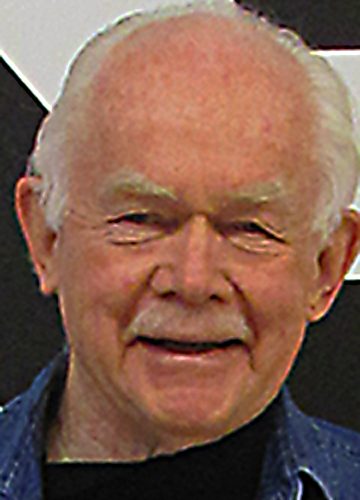All The World’s A Stage…

And all the men and women merely players…
All the world’s a stage,
And all the men and women merely players;
They have their exits and their entrances,
And one man in his time plays many parts.
William Shakespeare called our world a stage because just as actors make their entry and exits onto a stage, so we all enter into this world, move through different stages in life on this earth, and finally make an exit. Without a curtain call.
The Thursday night dress rehearsal before we mounted our first public performance on Friday night was always a moment of apprehension and anticipation. So much time, preparation and rehearsal was at stake. Would it all come together and achieve Shakespeare’s vision as interpreted by the director and her team of actors, designers and technicians that had been assembled to achieve what she was asking for?
Proof that it came together would be in exuberant audience applause. Or if not, in tepid applause bordering on silence.
The theatrical gamble pays off when there is intense collective collaboration among all the creative risk takers. It fails when that collaboration is splintered because of disagreement over what is essential to make the play work.
On Earth Day 2020, I see the coronavirus drama as a dress rehearsal for another, much larger planetary threat.
If we get past the Covid 19 crisis, we will face a set of new challenges, along with others that have been around for decades. How do we deal with the long-term rise of economic inequality, and the persistence of racial injustice? What do we do about the opioid epidemic? And the really big one; how do we respond to the fast-growing climate crisis?
Naomi Klein, in her must read book On Fire: The (Burning) Case for a Green New Deal, writes “But that doesn’t mean that climate change trumps everything else. It means we need to create integrated solutions, ones that radically bring down emissions while tackling structural inequality and making life tangibly better for the majority.” It’s called the Green New Deal.
We are a nation that is increasingly divided along spatial lines. For decades, Americans have been encouraged to respond to major challenges like urban decline, social unrest, and environmental degradation by isolating themselves in areas that are segregated by class and by politics.
The response to the pandemic underscores these divides. New data reveals that social distancing behavior is related to education; to race and ethnicity; to political identity and social capital; and to the impact that this virus has already had on the residents of particular counties. The sources of the data are from Yale’s Climate Change in the American Mind survey.
One of the strongest predictors of social distancing behavior is found in attitudes toward another major challenge facing the United States: our climate crisis. Places where residents are less likely to agree that global warming is real, that humans are the cause, are the places where residents haven’t changed their behavior in response to coronavirus. The analysis makes clear that we have a collective action problem much larger than Covid-19.
Unsurprisingly, politics and civic engagement (collective collaboration!) bear a strong relationship to social distancing behavior. Higher levels of social capital – a combination of voter turnout in federal elections, response rates in the 2010 census, the number of nonprofits per capita – is associated with more social distancing. By contrast, counties with the greatest share of votes for Trump in the 2016 election were least likely to practice social distancing.
While our nation reels from the coronavirus pandemic, the Trump administration is accelerating rollbacks that dismantle critical health and environmental protections that will exacerbate the climate crisis.
Under the guise of scientific transparency, the EPA is moving ahead with a rule that would limit the use of peer-reviewed epidemiological studies in setting public health standards – a rule opposed by dozens of leading public health and medical associations whose members are currently on the front lines fighting for our lives.
Unlike the theatre I managed in the 60’s in Philadelphia, the pandemic lacks a visionary director (i.e. president). America’s political theatre urgently needs a president and cabinet capable of collective climate collaboration. A team willing to risk what it will take to achieve what Abraham Lincoln called for in his Gettysburg address in honoring those who had sacrificed their lives in order “that government of the people, by the people, for the people, shall not perish from the earth.” So that they may celebrate Earth Day far into the future.







